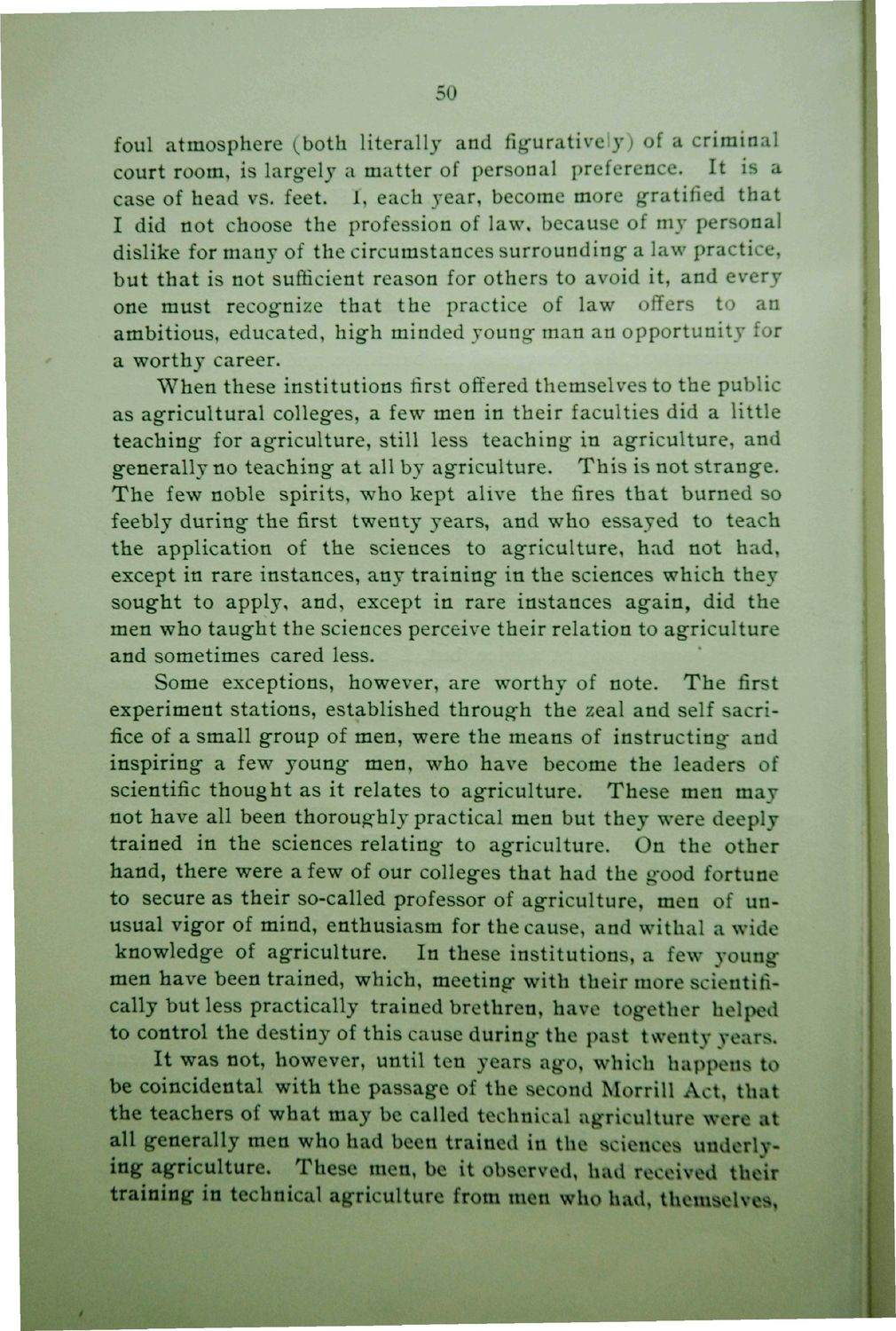| |
| |
Caption: Dedication - Ag Building
This is a reduced-resolution page image for fast online browsing.

EXTRACTED TEXT FROM PAGE:
50 foul atmosphere (both literally and figuratively) of a criminal court room, is largely a matter of personal preference. It is a case of head vs. feet I, each year, become more gratified that I did not choose the profession of law, because of my personal dislike for many of the circumstances surrounding a law practice, but that is not sufficient reason for others to avoid it, and every one must recognize that the practice of law offers to an ambitious, educated, high minded young man an opportunity for a worthy career. When these institutions first offered themselves to the public as agricultural colleges, a few men in their faculties did a little teaching for agriculture, still less teaching in agriculture, and generally no teaching at all by agriculture. This is not strange. T h e few noble spirits, who kept alive the fires that burned so feebly during the first twenty years, and who essayed to teach the application of the sciences to agriculture, had not had, except in rare instances, any training in the sciences which they sought to apply, and, except in rare instances again, did the men who taught the sciences perceive their relation to agriculture and sometimes cared less. Some exceptions, however, are worthy of note. T h e first experiment stations, established through the zeal and self sacrifice of a small group of men, were the means of instructing and inspiring a few young men, who have become the leaders of scientific thought as it relates to agriculture. These men may not have all been thoroughly practical men but they were deeply trained in the sciences relating to agriculture. On the other hand, there were a few of our colleges that had the good fortune to secure as their so-called professor of agriculture, men of unusual vigor of mind, enthusiasm for the cause, and withal a wide knowledge of agriculture. In these institutions, a few young men have been trained, which, meeting with their more scientifically but less practically trained brethren, have together helped to control the destiny of this cause during the past twenty years. I t was not, however, until ten years ago, which happens to be coincidental with the passage of the second Morrill Act, that the teachers of what may be called technical agriculture were at all generally men who had been trained in the sciences underlying agriculture. These men, be it observed, had received their training in technical agriculture from men who had, themselves,
| |